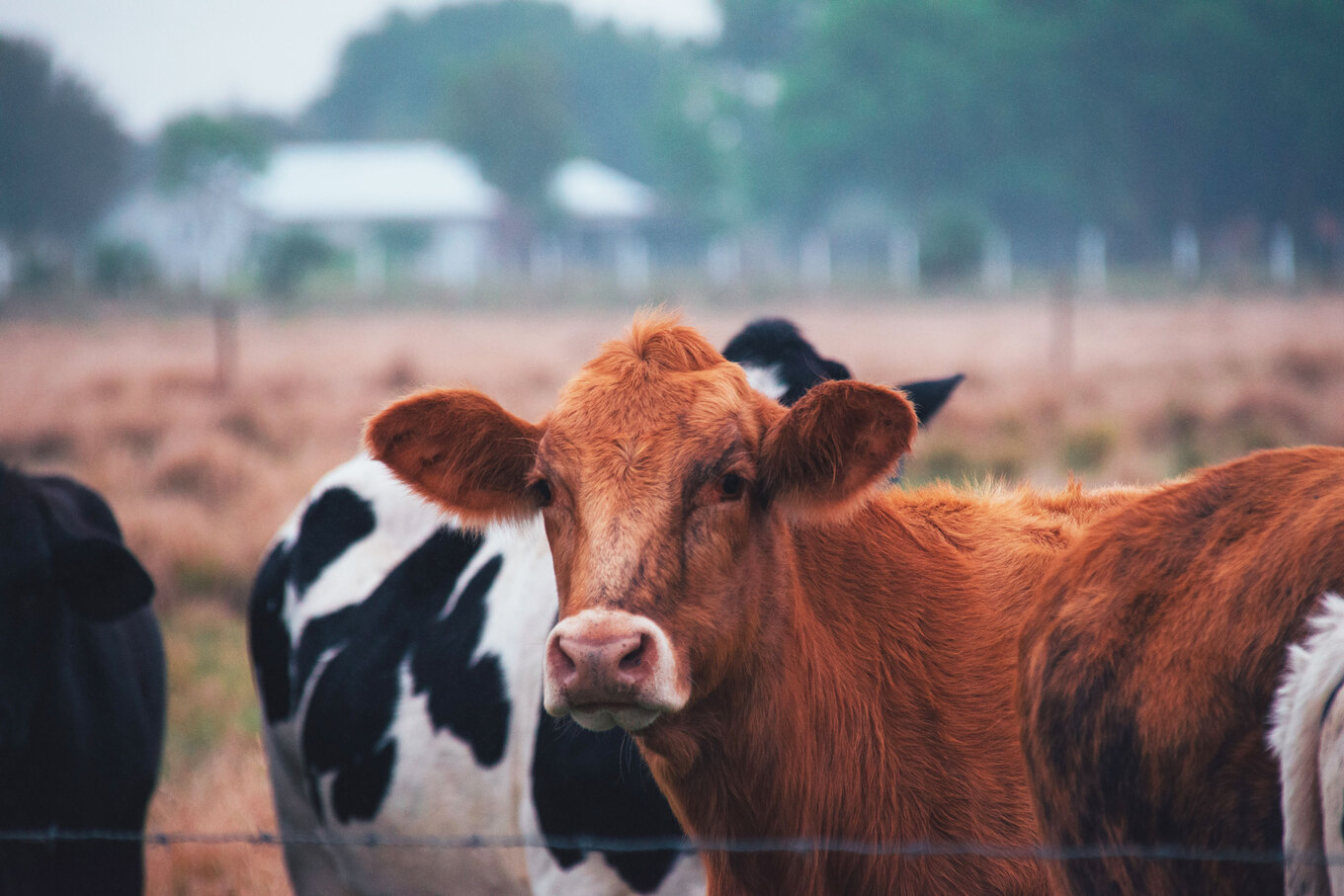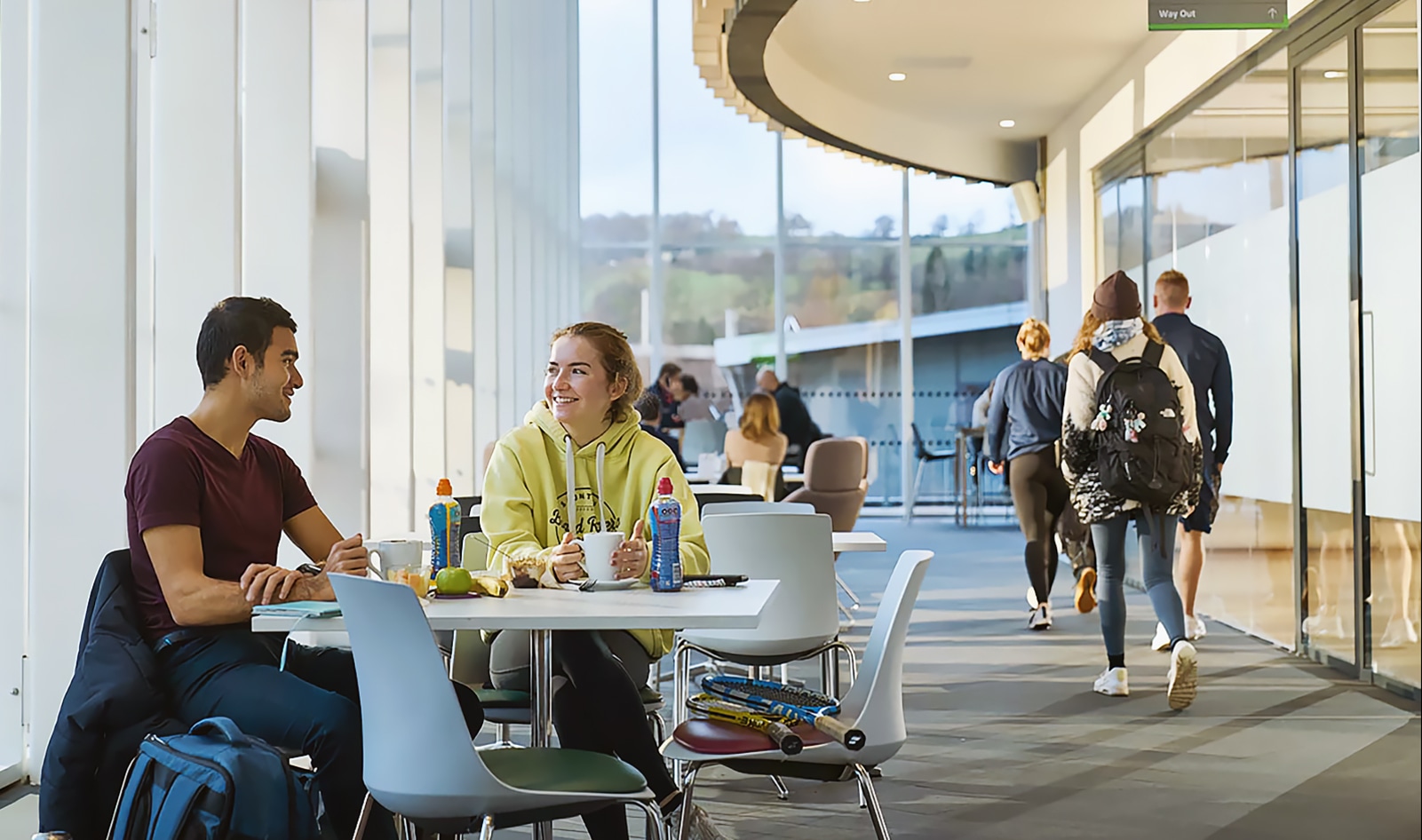Students at the University of Stirling in Scotland, United Kingdom, have voted in favor of making campus menus 100 percent vegan by 2025 in an effort to support a more sustainable food system.
The motion was put forward to the University of Stirling’s Students’ Union by the Plant-Based Universities campaign, which urged the union to transition the school campus to a plant-based food system to help tackle climate change. The motion pointed out that, globally, the largest portion of carbon emissions from food production comes from animal agriculture, noting that producing one kilogram (2.2 pounds) of beef resulted in 70 kilograms (154 pounds) of emissions.

Unsplash
The majority of attendees of the Students’ Union general meeting voted in favor of the change. “This vote is a clear sign that young people are willing to take decisive action on the climate and ecological emergencies,” Imogen Robertson, 21, a Plant-Based Universities campaigner at Stirling University, said in a statement. “We will be working with catering staff to ensure this vote is implemented in a way that provides cheap, delicious, planet-saving options throughout our Students’ Union.”
The move will affect three food outlets that are owned by the Students’ Union. The students are aiming to make 50 percent of food vegan by the 2023-24 academic year, and 100 percent by 2025.
“We are delighted that our fellow students have decided to follow the scientific advice from world-leading academics and step into a brighter future,” Robertson said. “We hope this sparks a wave of bold action across UK universities to commit to just and sustainable plant-based catering.”
The Plant-Based Universities campaign is a nationwide UK initiative of students who are pushing for their universities and student unions to adopt 100 percent plant-based catering. The group claims that universities have an obligation to follow the scientific research they produce about the environmental impacts of animal farming and fishing. The campaign is active in more than 40 institutions, where students run local campaigns.
The environmental effects of animal agriculture
According to a 2020 report by government-funded research group Energy Systems Catapult (ESC), the UK will need to slash its meat and dairy production by up to 50 percent to achieve its climate goals to become carbon neutral by 2050.
The report pointed out that the UK must make substantial changes in three areas: low carbon technology, land use, and lifestyle. Along with slowing demand for aviation, relying more on solar power, and planting carbon-sequestering forests, ESC suggests that other land use and lifestyle changes, primarily drastically reducing the production and consumption of animal products, are necessary for meeting the UK’s climate goals.

Unsplash
And with more institutions like Stirling University taking charge to reduce their own carbon emissions by banning meat and dairy from their campuses, they’re doing just that.
“It’s fantastic to see the next generation taking control of their future and putting humans, nonhuman animals, and the planet first,” environmentalist George Monbiot said in a statement. “The Plant-Based Universities campaigners at the University Of Stirling are leading the way in tackling the climate crisis and creating a sustainable food system.”
Universities add vegan meals to tackle climate change
The Stirling University vote represents the first of its kind in the UK, following similar commitments by universities in other countries. In 2021, four universities in the German capital of Berlin committed to drastically reducing meat options at their combined 34 campuses in a joint effort to fight climate change. That year, university menus shifted to offer 68 percent vegan options, 28 percent vegetarian options, two percent fish options, and only served one other meat option four times per week.
Over in Portugal, the University of Coimbra in Lisbon—the oldest university in the country—pledged to remove beef from all 14 of its cafeterias in 2020. The university made the move to help the university become carbon-neutral by 2030.

University of Coimbra
“We are experiencing a climate emergency and we have to put [the] brakes on this projected environmental catastrophe,” University of Coimbra chancellor Amílcar Falcão said in a statement.
“I think the biggest impact is to make people aware of the problem,” Falcão said. “What is more dramatic is that world leaders do not understand that the future of the planet and of our young people, our children, and grandchildren is at stake, and that it is too worrying not to warn off the problem, even if they are small gestures.”
Similarly, a number of universities in London banned beef from their campuses for environmental reasons, including Goldsmiths (part of the University of London) and the London School of Economics and Political Science.
For the latest vegan news, read:
JUMP TO ... Latest News | Recipes | Guides | Health | Subscribe









